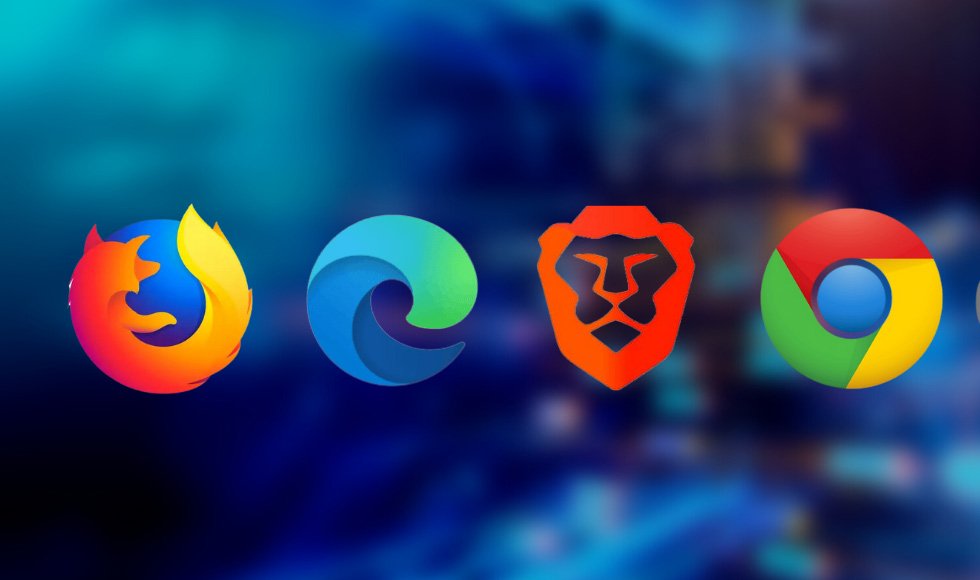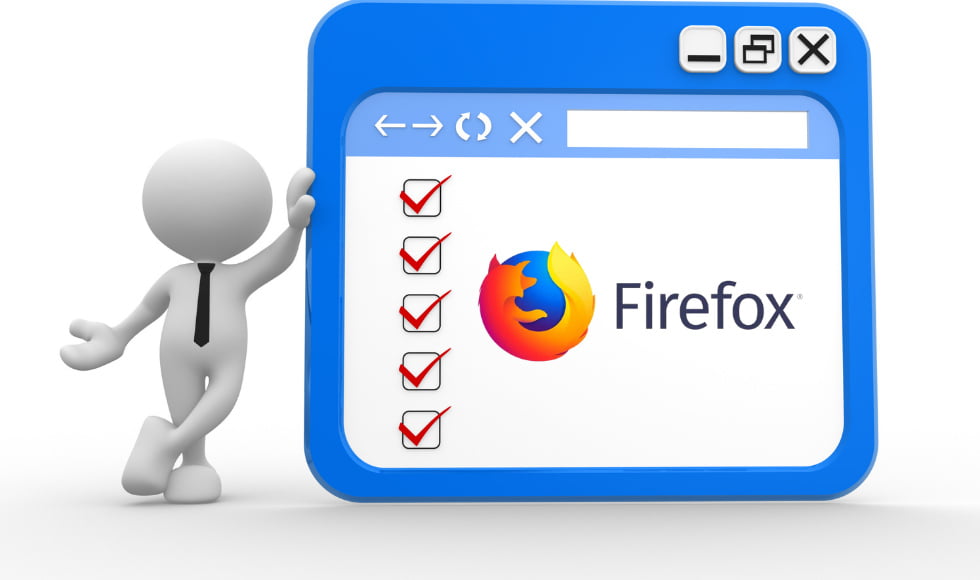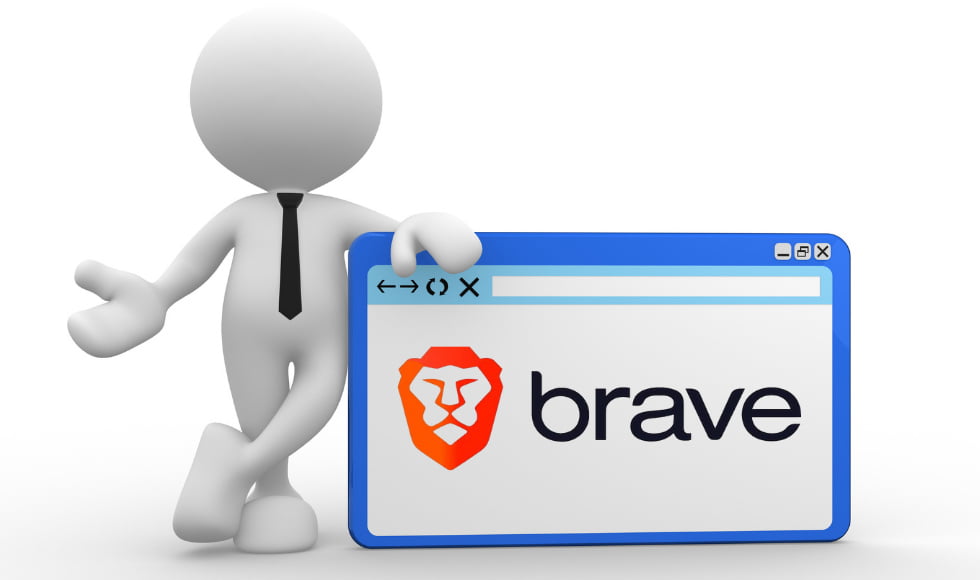To enjoy a good browsing experience, you’d need to find yourself some of the best browsers for Windows. With a good pick, you’ll rarely have to end up facing issues with performance and never worry about security. But I know how hard it can be to pick the right option- all the top browsers are equally good. That’s why I’m going to tell you all the little but important details about these browsers in this article, along with telling you all their pros and cons.

1. Mozilla Firefox

I bet you expected to see Google Chrome first. However, though that browser is fairly popular, it belongs to the lower portion of this list due to some significant flaws. Firefox deserves to be first, as it’s perfect for both laptop and desktop users. It’s reliable, looks clean and has a good set of useful features. It even has a handy task manager to help you better manage your resources.
The most notable things about this browser, though, are its privacy features and its extensions. Let’s talk a little bit about the privacy aspect first. A lot of browsers, like Chrome, can get alarmingly invasive to cater to advertisers. You don’t have to worry about that at all when it comes to Firefox. There are even some unique features available to ease your worries in that regard. For example, when you’re using it in private mode, it turns on a feature called Tracking Protection. The feature blocks requests from Tracking Domains, keeping you a little more secure while offering you some extra speed.
Further, there are some excellent extensions for the browser as well. A Multi-Account Containers extension gives you the convenience of using separate accounts on the same site, all in the same Window. You can do that on multiple tabs rather than opening up anything like a Private Window. You won’t find as many extensions as you will with Chrome, but the ones available are very versatile. Certain features are also in the works which are meant to improve quality for AR and speech synthesis.
All in all, this browser is a great option. It may not have the material look of Chrome, but it still looks excellent. In fact, Mozilla Firefox is actually a favourite browser for several of my team members, including me. It deserves to be considered one of the best not only because of its features but also because of how Open Source it is.
Pros
- Offers a lot of customizability.
- Available on multiple platforms.
- Convenient cross-platform sync feature.
- Comes with top-tier privacy protection.
- Offers powerful extensions and versatile features.
Cons
- Has some performance issues.
- Doesn’t have as many extensions as Chromium-based browsers.
Recommended Reading: The 11 Best laptops under 40000 in India: Expert Picks
2. Microsoft Edge

Though its predecessor was far from good, Microsoft has taken huge steps forward by bringing out Edge to replace Internet Explorer. The new browser’s UI perfectly aligns with the other browsers of this age without seeming clunky and outdated. Of course, I’m not simply adding it here because of the visual changes.
If you’d rather not bother installing a new browser, you can do perfectly well with just Edge. This new iteration of Microsoft’s browser no longer has the biggest flaw of its predecessor- website compatibility.
Internet Explorer has huge problems with most modern websites, as the developers of these sites usually just consider Chrome for compatibility, without adding support for Explorer. Edge uses Chrome’s webpage-rendering code, Chromium, to ensure that there are no compatibility issues. Performance isn’t a problem either. The browser goes toe-in-toe with Firefox’s performance, so you can use it reliably fast. Unlike Explorer, it can even run fast on low-end laptops.
In terms of features, it comes with a few unique offerings as well. There’s the Immersive Reader mode, which is more sophisticated than the Reader Mode feature in other browsers. It does all the basics- it can get rid of distracting visuals on a webpage and offer a smooth and simple reading experience.
Beyond that, it also has a special text-to-speech feature. I say special because this variant of the TTS feature can read the contents of a page in a smooth, more natural voice. That means that rather than simply droning out sentences word by word like a robot, it reads the sentences with intonation instead. Hence, it’s a perfect feature for those looking for some extra convenience.
One more notable thing about this browser is the level of control it gives you over your privacy. The highest level of internet security always comes at a cost- which is not being able to use certain website features like Javascript. When they get turned off, several websites that use these features won’t work correctly.
However, it is important to turn these features off for security as they can easily be exploited. But, if you’re using a site you know and trust, you can change the level of privacy protection to re-enable all the important features so the site can run properly.
Pros
- Integrates seamlessly into Windows, offering better performance.
- Can be used to save websites as apps.
- Efficient and convenient privacy features.
- Convenient reader mode.
- Easy to set up, no need to install separately.
Cons
- Doesn’t support enough extensions as other browsers do.
- Some websites still aren’t compatible.
- There’s no history search feature.
Recommended Reading: Which are the Best laptops under 50,000? Top 11 Picks
3. Brave Browser

Whilst Firefox can be considered the best for overall value; Brave Browser is certainly a close competitor. It’s essentially the perfect alternative to Chrome. Let me tell you how.
First off, the browser has a fairly similar look to Chrome, though it still looks distinct. However, if you’ve ever used Google’s browser before, you’ll feel at home whilst using this one. Even better, you can also customise the appearance.
Extensions are also a noteworthy part of this browser. There’s no denying the fact that Chrome has some of the best extensions out there. Well, you can take full advantage of these extensions while still using Brave. The browser is built on Chrome’s code, so it supports just about any Chrome extension.
The browser also runs far better than Chrome- around 3x faster than the latter. Chrome is already one of the fastest browsers around, so that should tell you about how good Brave can run.
Now, reading what I’ve said above, you might think that the biggest edge Brave has over Chrome is the performance. That’s not the case, though. The primary reason you’d want to try out Brave is its privacy protection features. Chrome has some rather suspicious and unreliable privacy practices- it can easily become too invasive once you look at all the things it does with your personal data. Brave, meanwhile, keeps all your data completely private, even from itself. The developers have said that their servers don’t see or store your data. As such, they don’t sell said data to third parties either.
Other advanced privacy features the browser offers include Tacker blocking, fingerprinting prevention, script blocking and so on. There’s even a dedicated password manager. If you want to learn in detail about all of these, you can read this.
Pros
- Offers a lot of internet security.
- Supports nearly all Chrome extensions.
- Better search engine integration.
- Has excellent performance.
- Easy to use Sync feature.
Cons
- Lacks distinctive features.
Recommended Reading: Which are the 11 Best laptops under 60000 in 2023? Know it from the Experts
4. Opera

Opera is perfect if you tend to do a lot of general browsing and chatting. In fact, one of Opera’s best features is perfect for the latter. This browser comes with an incredibly convenient sidebar, which allows you instant access to web app versions of Whatsapp and Messenger. You don’t have to bother opening new tabs, as you can just use the sidebar to do such things.
Privacy is never going to be a concern with Opera. While it’s pretty reliable for being such a long-running browser alone, it does offer plenty of extra protection. The most notable is the built-in free VPN. VPNs are some of the best ways to keep your data safe, and you usually have to pay for them. Not even other high-profile browsers like Chrome come with a free VPN. To use such a service in them, you’d usually have to go for unreliable extensions, unlike what you can do in Opera.
Similarly to Brave, Opera also supports all Chrome extensions thanks to its integration with Chromium. There are other handy features for you to enjoy too. For instance, there’s an AdBlocker, and there’s another feature called My Flow, which lets you move your content (like articles, photos and videos) between devices while keeping them encrypted. That’s not all either. You’ll find more little convenience features to enjoy as you use the browser.
You can definitely go for it if you like the looks and features.
Pros
- Comes with a built-in VPN.
- Reliable security.
- Ideal for working on content.
- Versatile and good looking interface.
Cons
- Some built-in features can be a hassle to access.
Recommended Reading: Best Gaming Laptops Under 60000 in India 2023 – Reviews & Buyer’s Guide
5. Google Chrome

Of course, this list wouldn’t be complete without the popular browsing application from Google.
For an average user, Chrome offers a lot of familiarity and plenty of flexible features. If you’re just moving over to Windows or simply want a reliable browser, you can easily stick to using this browser. It can run all modern sites without issues and run Google services more smoothly than many other browsers. So, if you’re an avid user of Gmail or YouTube, you’ll enjoy using this browser.
It’s not the best for privacy, but it won’t leak your passwords or anything like that. It’ll just analyse your web history to get more appropriate ads for you for the most part. There’s nothing you can really do about that; that’s something you have to put up with. Another significant flaw of this browser is its resource consumption. Though it runs pretty fast and comes with a Tab Freezing feature that helps tone down some of its load, it still struggles to run on lower-end hardware.
The browser does make up for all that in other ways, though. While offering everything I talked about earlier, it can give you more convenience in other ways too. It has excellent cross-platform integration with Android, so you can seamlessly juggle between your devices.
Besides that, there’s a handy autofill feature and a host of powerful tools for web developers. Its benefits don’t end there either. There’s a great library of add-ons available, and it even has a privacy feature that helps keep your accounts safe- it warns the user whenever their email is compromised.
There’s not much else for me to say about this browser. If you’re using a mid-range laptop or a high-end one, then you can try this browser without any issues.
Pros
- Reliable and fast performance.
- Flexible features.
- Great cross-platform performance.
Cons
- It can be a significant resource hog.
Recommended Reading: Best Laptops for Students in India 2023 – Reviews & Buyer’s Guide
Conclusion
These are the best browsers of 2023. There are other excellent options around, but none deserve being considered the top 5 as these browsers do. Choose one, and you’ll be set for a long while. Any one of these is more than enough to keep you satisfied with good performance and top-tier security. That’s all for today. Happy browsing.
- Need An Entry-Level NVIDIA GTX 1650 Laptop? Check Out The ASUS TUF Gaming A15 15.6″ FHD AMD Ryzen 5 4600H - December 19, 2022
- Why You Should Try The Lenovo IdeaPad Gaming 3 AMD Ryzen 5 5600H 120Hz Gaming Laptop – A Laptop Designed To Last - November 8, 2022
- A Review Of The HP Pavilion Gaming DK2100TX 15.6-inch Laptop – The best 11th Gen Mid-range Laptop - November 8, 2022
